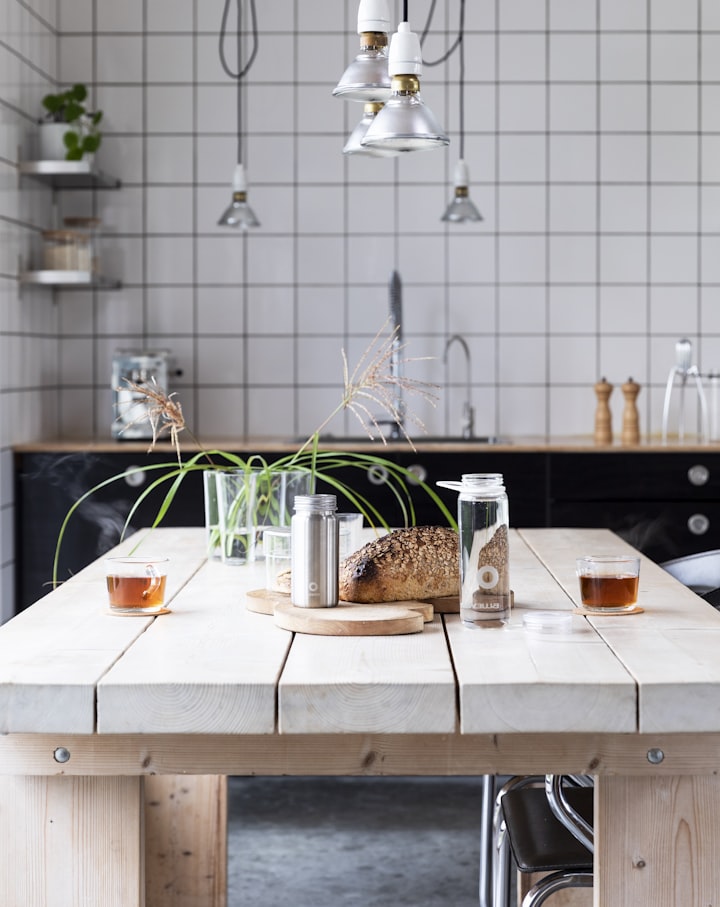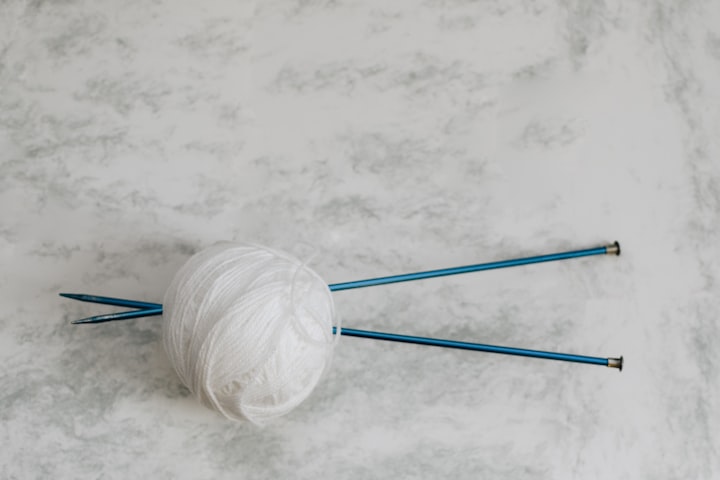
It was their first piece of proper furniture, grown-up furniture Lydia called it, after they’d got married. They were both graduate students, living off tiny grants and part-time jobs, and the table took the pride of place in their miniscule sitting room in the flat they’d found over a chip shop. It smelled of greasy haddock and the windowpanes rattled every time a car went past, but it was their home, and the table was the start of making it so.
It was a lovely table, made of a deep, glowing oak. A small table too; it only seated four, yet with just the two of them it hardly mattered. It certainly felt big enough for their two plates of beans on toast. It was big enough for Rob to spread out his law books as he studied late at night, and sometimes he fell asleep with his head pillowed on his arms.
The table was the stage for what Lydia later called ‘a fortuitous disaster’, when she served an inedible supper to her dignified in-laws, only to have them, after an appalled silence, burst out laughing. It had been the start of a lovely relationship.
Two years after their wedding Emma was born, and they moved to their first proper house, a semi-detached two bedroom in what the estate agent had optimistically called an up and coming neighbourhood. The table was moved from the sitting room to the kitchen, tucked into a nook that Lydia declared was perfect for it.
The glowing oak received a few battle scars from mornings when Lydia slumped over her second cup of coffee and Emma banged on its burnished surface with a spoon, creating endless little divots. When Andrew came along, streaks of permanent green marker decorated the table’s surface, much to Lydia’s dismay. She covered up the oak she’d so loved with easy-to-clean waxed tablecloths, and when Jamie came a year later-surprise—they moved again, this time to a detached four bedroom since Rob had got a promotion.
They were a family of five then, and the table no longer served its purpose. After some debate, they moved it up to Emma’s bedroom where it served as a desk, and soon glitter and paint were added to the divots and green marker, and Lydia hardly ever saw its surface underneath Emma’s books, papers, and often clothes. Sometimes half her wardrobe seemed strewn over it.
It languished in Emma’s bedroom for nearly a decade before she declared she wanted a proper desk—and a laptop—for her A-Levels. Rob agreed to the desk but not to the computer, and the table was taken downstairs where it remained in the hall, too big for the space so everyone had to move awkwardly around it, its surface first decorated with a lace cloth and a vase of flowers, and then as busy lives took over, piles of post, a mismatched assortment of scarves and mittens, and Jamie’s discarded sweet wrappers.
A couple of years later, during a glorious summer heat wave, Lydia pitched everything off the table and dragged it outside for a barbecue. Emma was bringing her first serious boyfriend home from uni, and Lydia had promised the boys would behave.
Amazingly, they did, and the evening was an unqualified success. The boyfriend was lovely and they all stayed outside far too late, feet propped up on the table, gazing at the stars.
Somehow the table never made it back inside. They used it all summer and by autumn it was weathered and warped from rain; the heat wave hadn’t lasted.
Rob pushed it to the side of the garden when he moved the lawn and it remained forgotten in a flower bed for a year until he decided it was good enough to use in his shed, where he and Jamie liked to do their woodworking.
Lydia would have forgotten it completely if Rob hadn’t decided one day to drag it back out again. It was twenty-two years old at that point, and Jamie had just gone off to university, leaving them both emptynesters with seemingly too much time on their hands. Lydia distracted herself with baking too many cakes—she’d come a long way since that first inedible meal for her in-laws—and Rob had retreated to his shed, determined to have a good clear-out.
He left the table in the middle of the garden, battered and warped, neglected and nearly forgotten.
“Should we take it to the tip?” he asked, eyeing it askance. “It’s not good for much now, is it?”
”I suppose not,” Lydia said, her hands on her hips, and then, inexplicably, her eyes filled with tears. Rob stared at her in surprise and she shook her head. “I’m being silly, I know. It’s just a table. But do—do you remember when we bought it?”
“Our first piece of grownup furniture.”
Lydia let out a choked laugh, and then sniffed rather loudly. “Take it to the tip, Rob. It looks rotted right through.”
She watched him drag it away, and her heart twisted inside her. Just a table, and yet in that moment it seemed to signify so much. The end of a stage of life, she supposed. She and Rob had fulfilling careers, busy lives, and yet still time marched on. No more of a noisy houseful, exhausting and exasperating days, dirty washing left in piles and the milk always left out with the lid off. She couldn’t help but grieve for it all… and her once-beloved table seemed to symbolize the best of those years.
That night Rob told her he’d taken the table to the tip, and Lydia nodded. ‘All’s well ends well,’ she said, inanely, and swallowed past the lump in her throat.
A week later while they were eating dinner alone at the dining room table that now seemed enormous, he placed a wrapped package by her plate.
She opened it, mystified. It wasn’t her birthday or anniversary… or anything.
“Oh, Rob.” It was a photograph of the five of them laughing and lounging around the table when it had been in the garden, a bit worse for wear but still good for use. “Where did you find it?” she asked and he gave her a lopsided smile.
“It’s not the photo so much, love, as the frame.”
She started then, as she took a look at the wooden picture frame, ran a thumb over a divot and touched a streak of green marker with her finger. “How…”
“There was enough good wood left to make something of it,” he said simply. “We can’t go back in time, but we can keep the memories.” He reached across the endless expanse of that table and kissed her lips. “Consider this a little reminder.”
And laughing, blinking back just a few tears, she did just that.
About the Creator
Kate Hewitt
I am a bestselling author of both novels and short fiction. I love writing stories of compelling, relatable emotion. You can find out more about my work at kate-hewitt.com






Comments
There are no comments for this story
Be the first to respond and start the conversation.